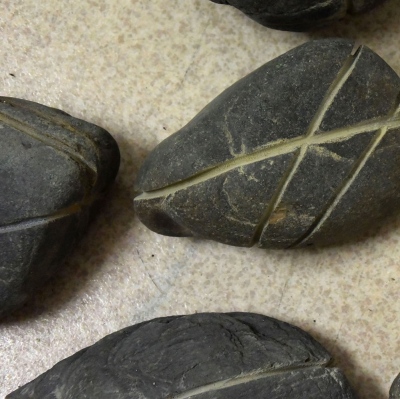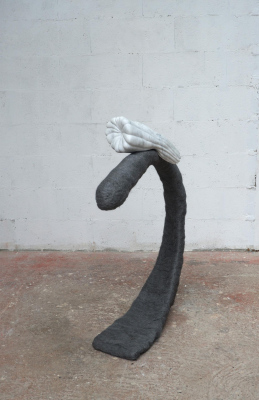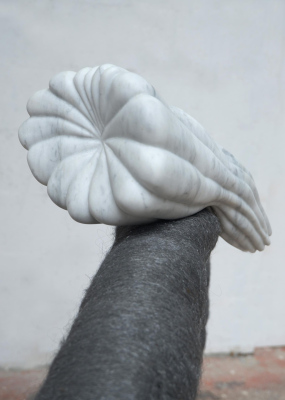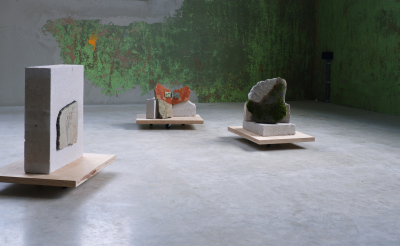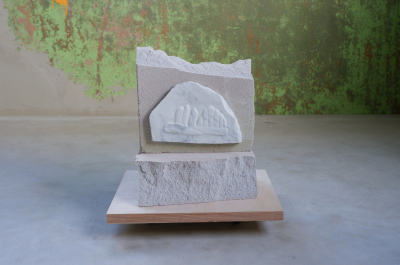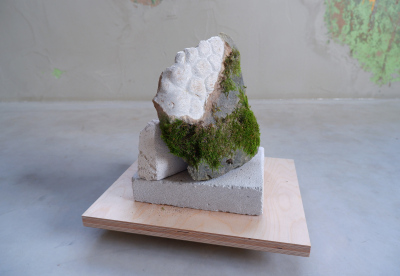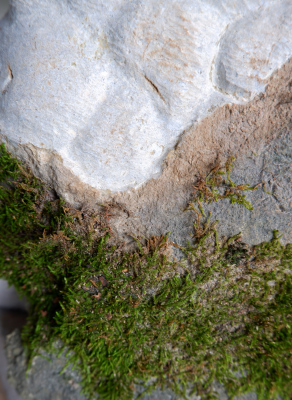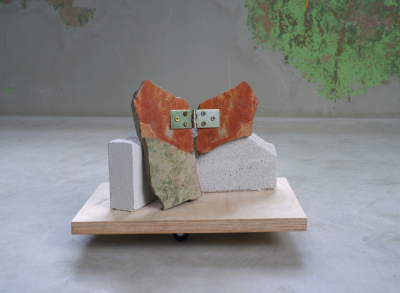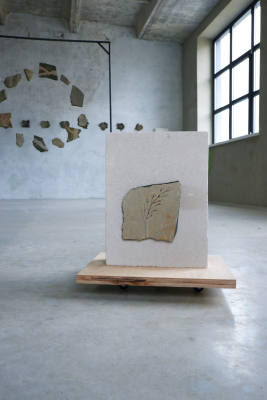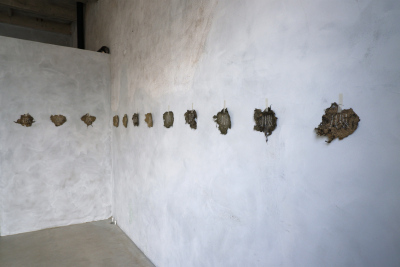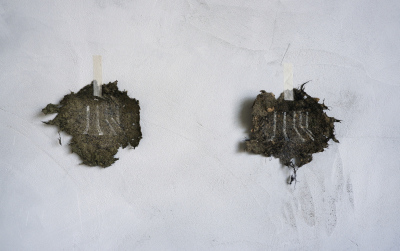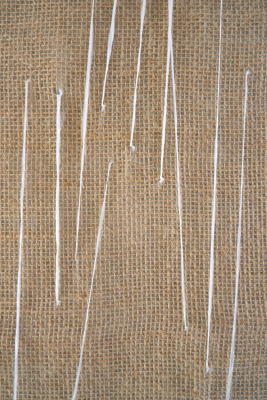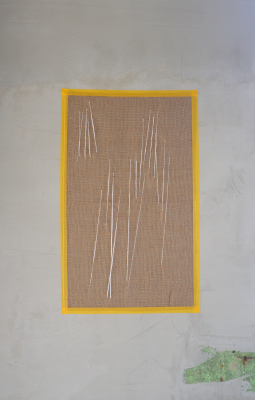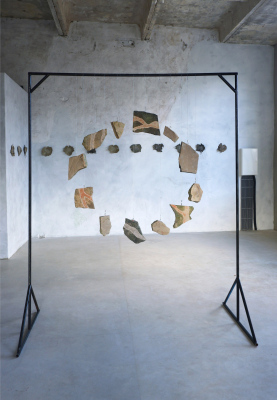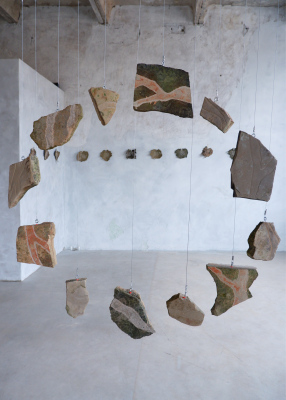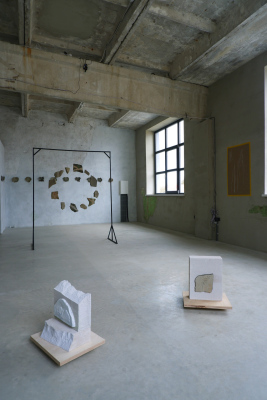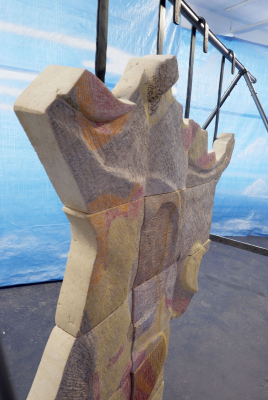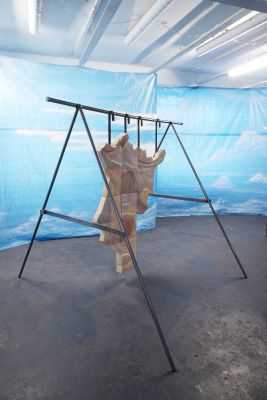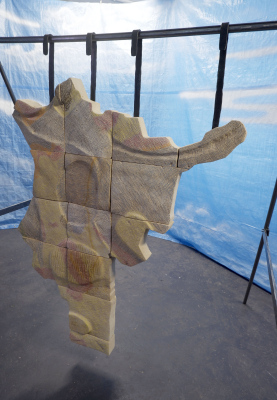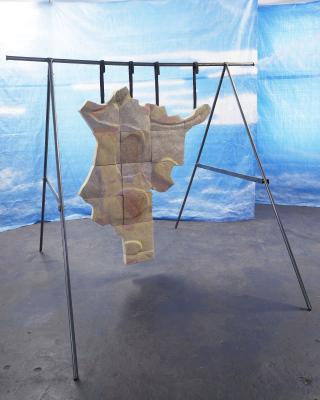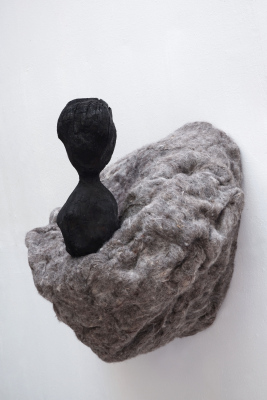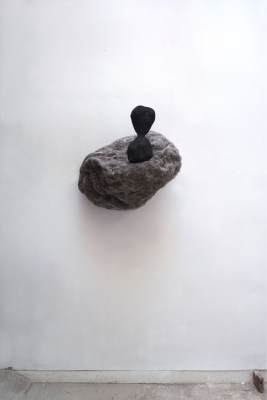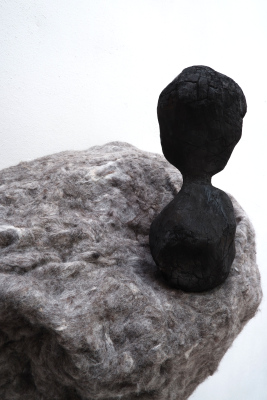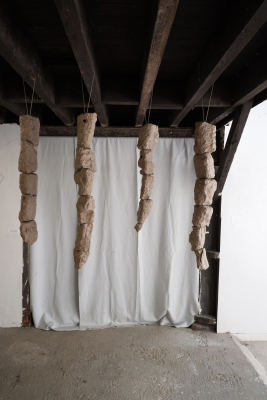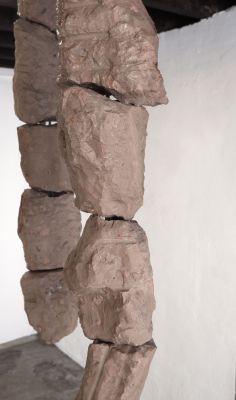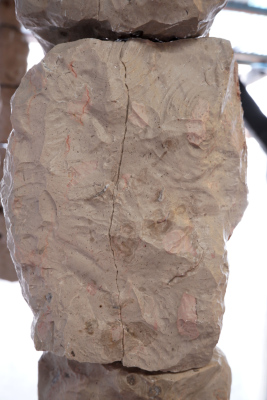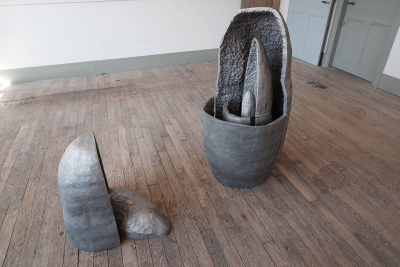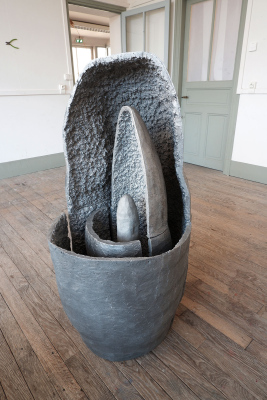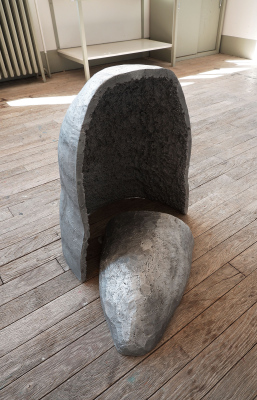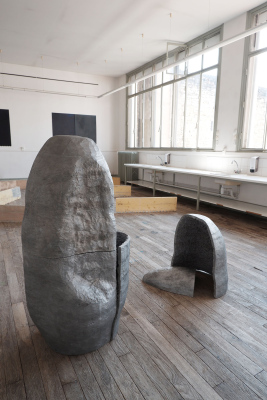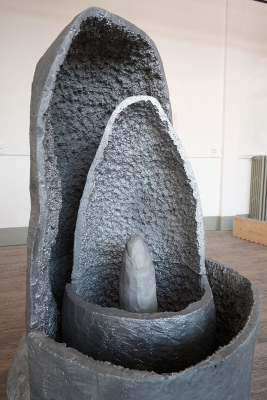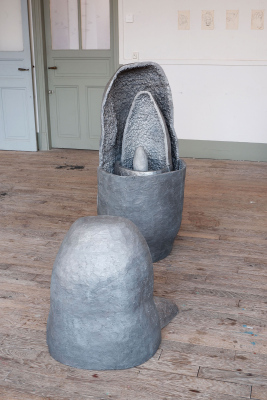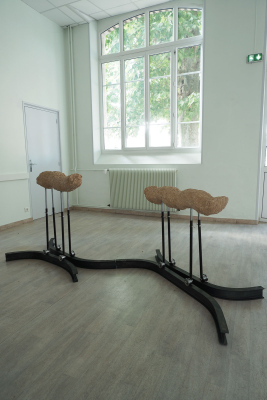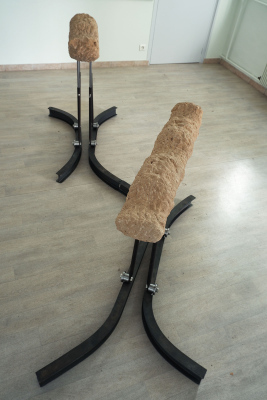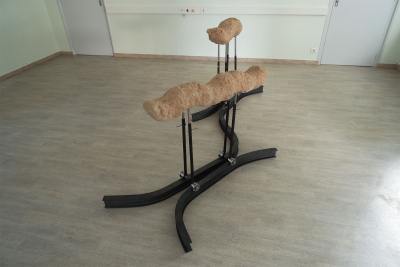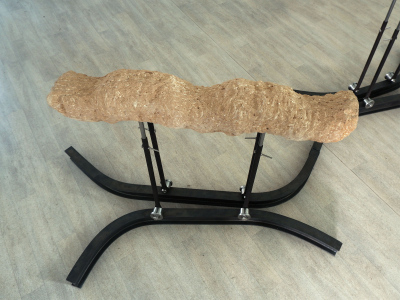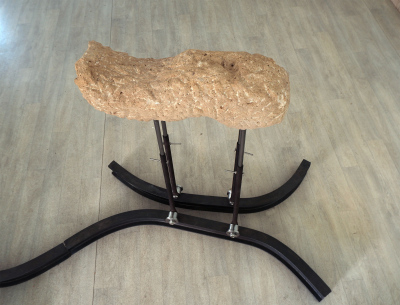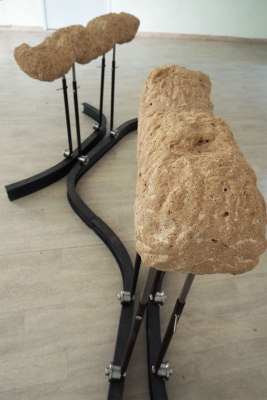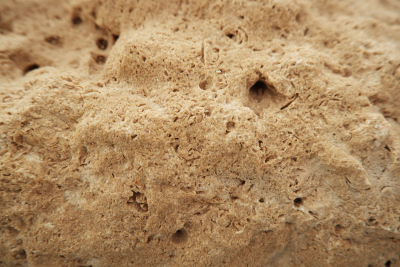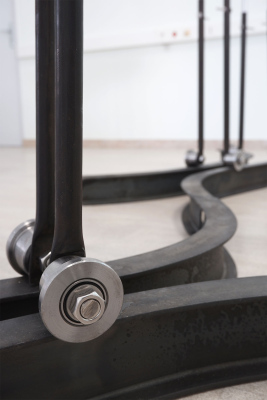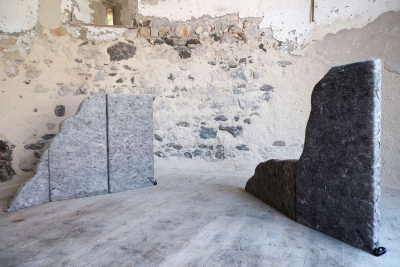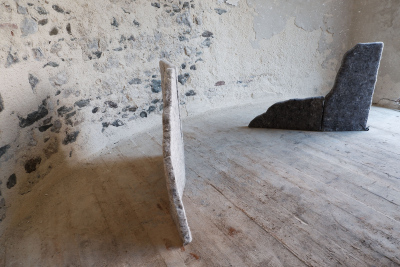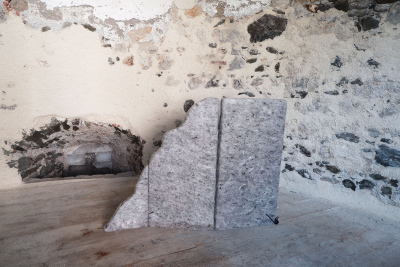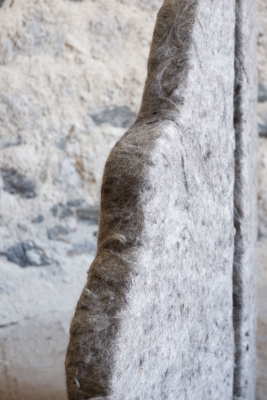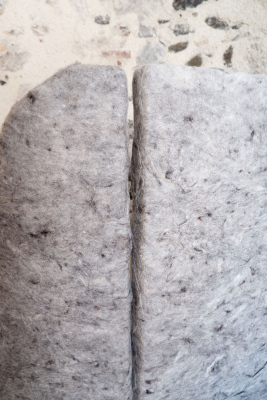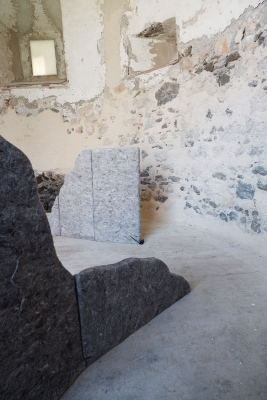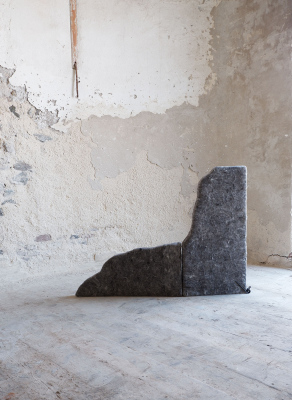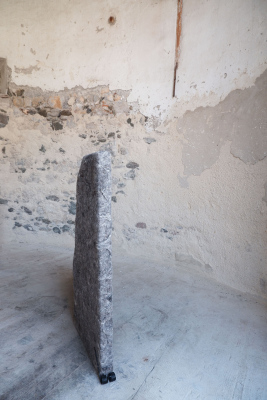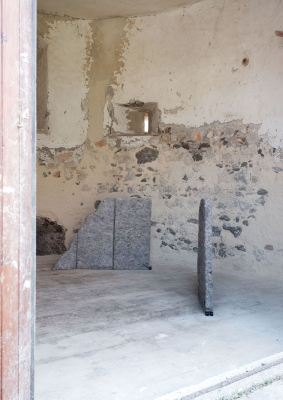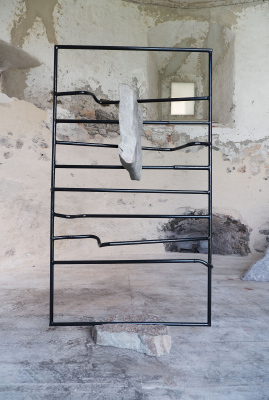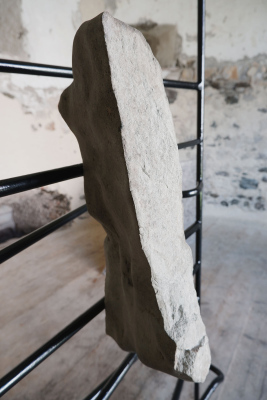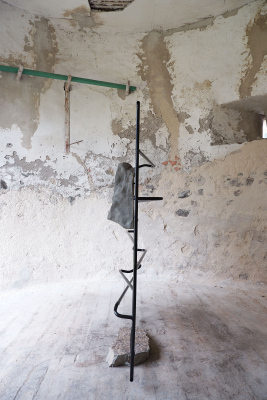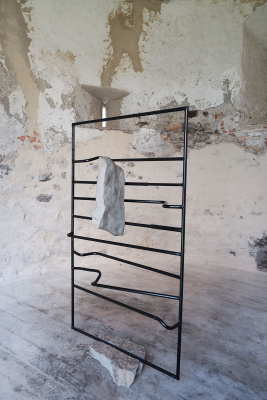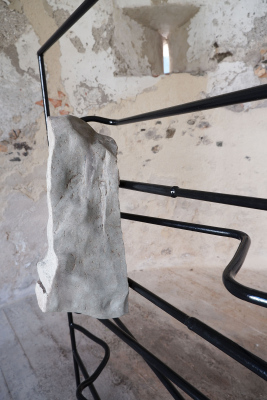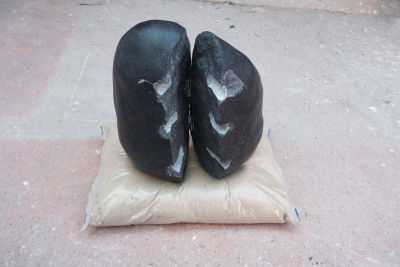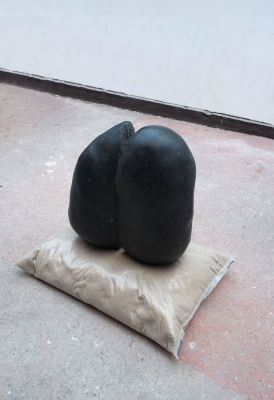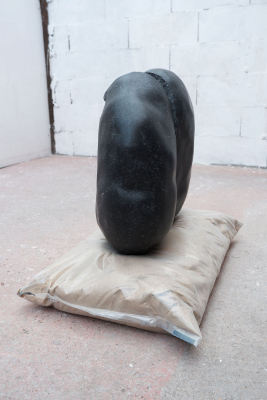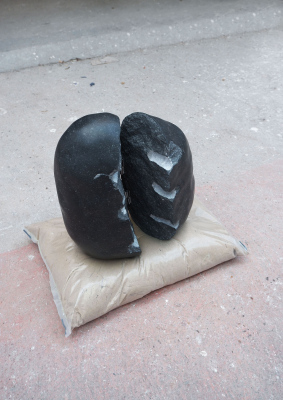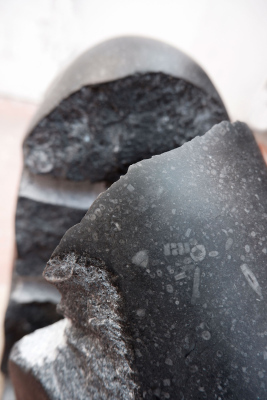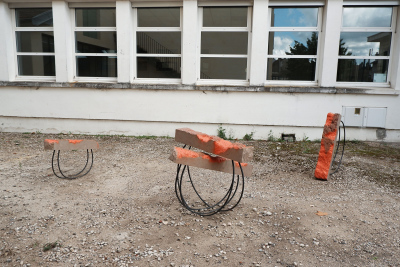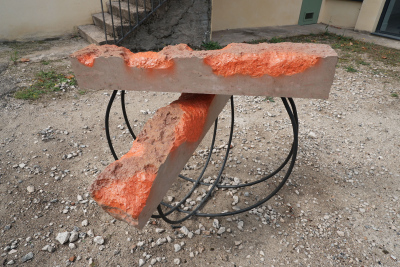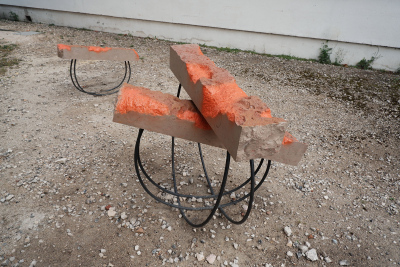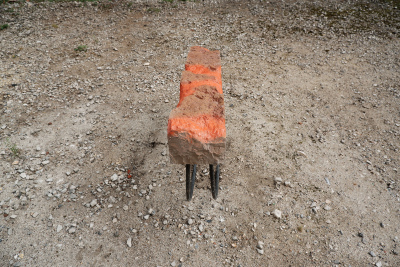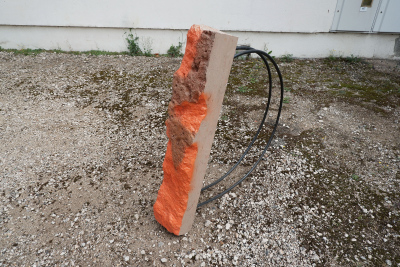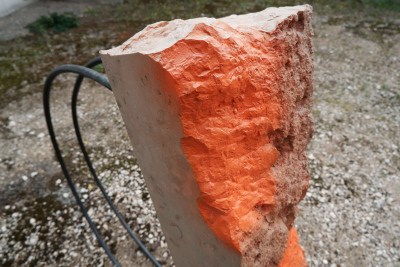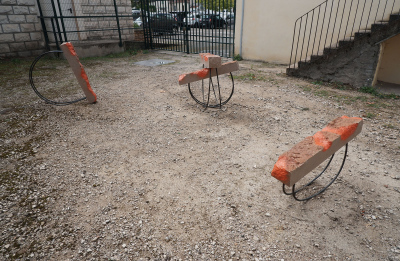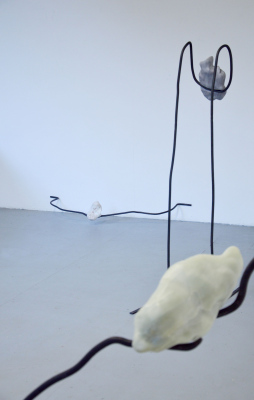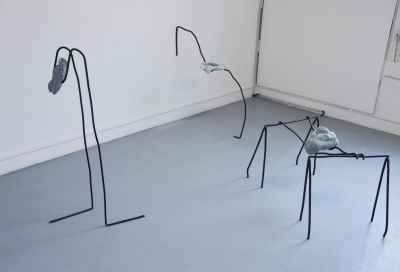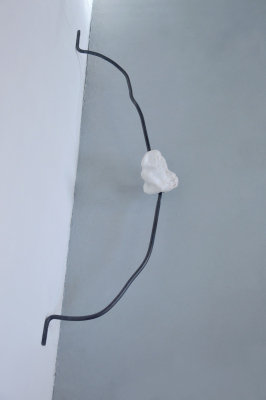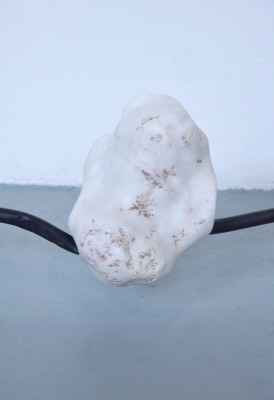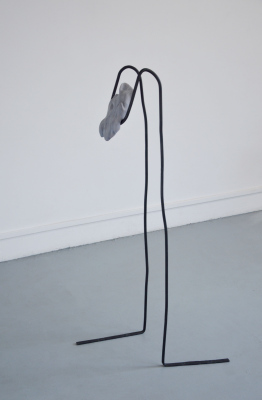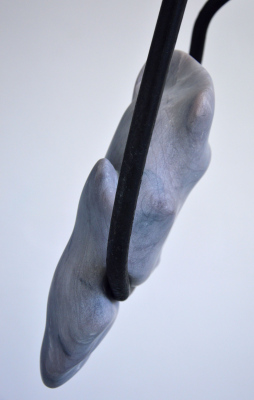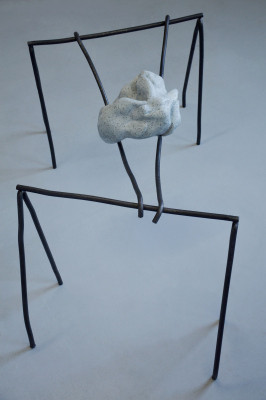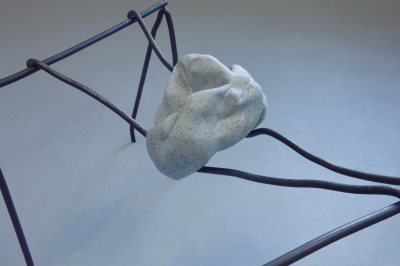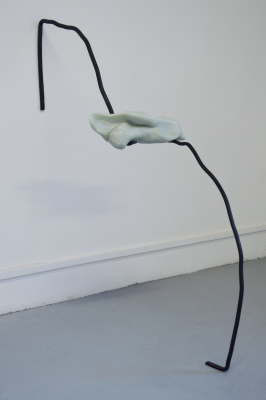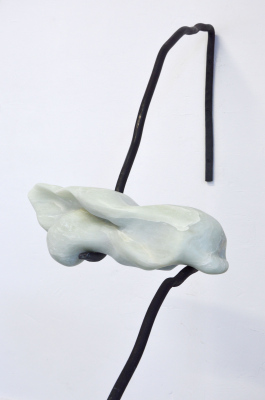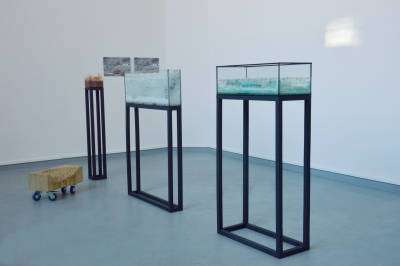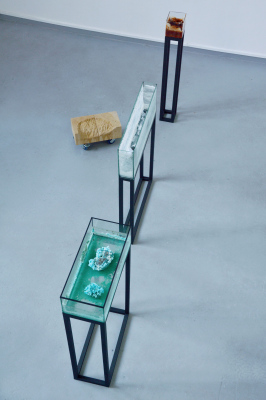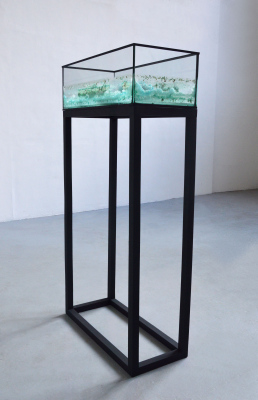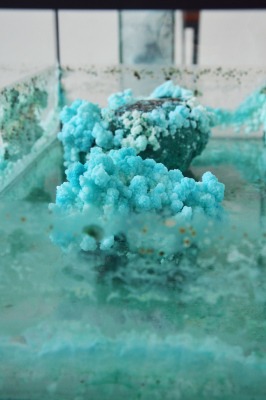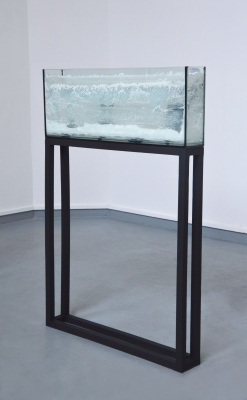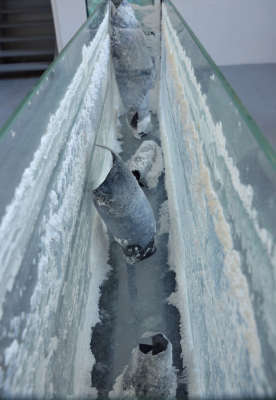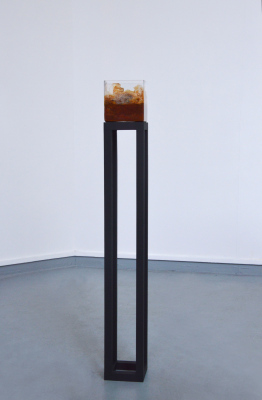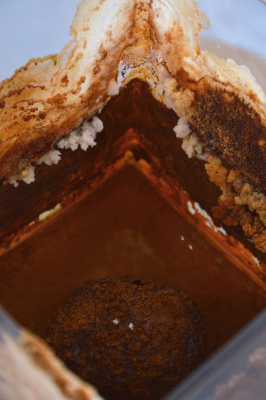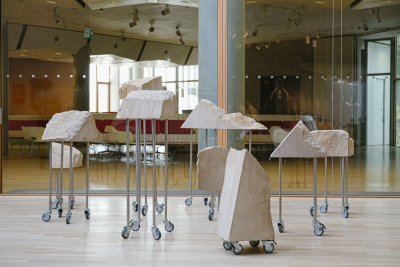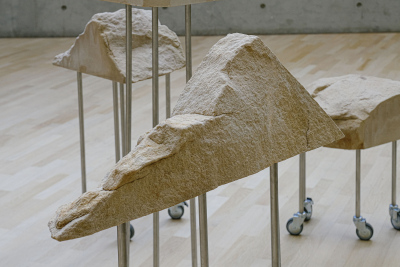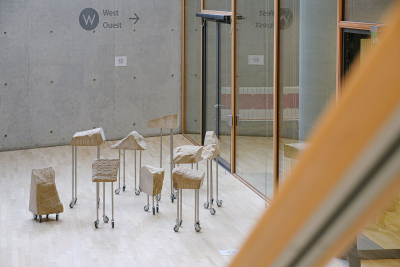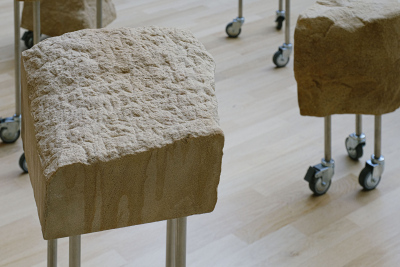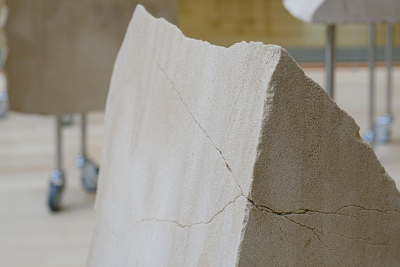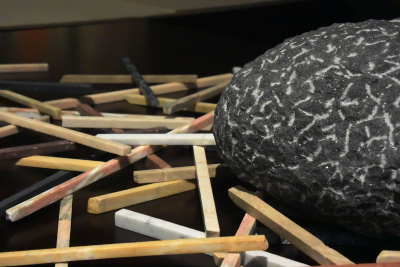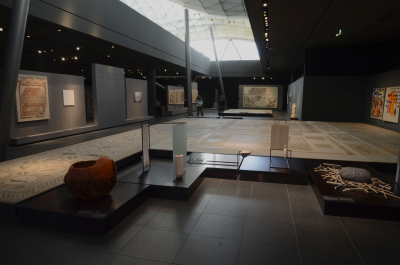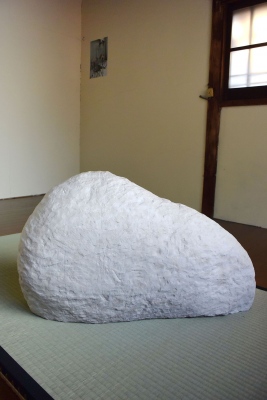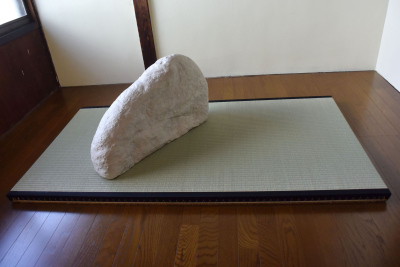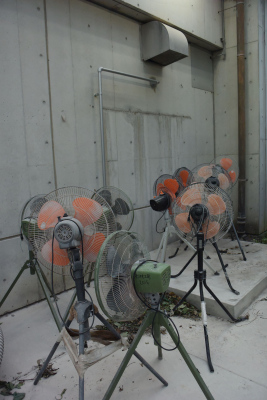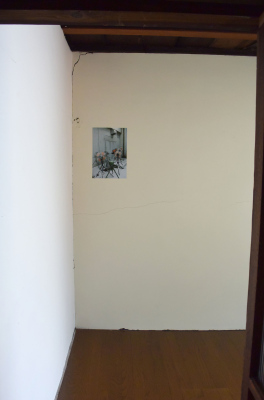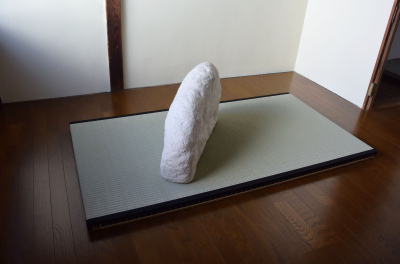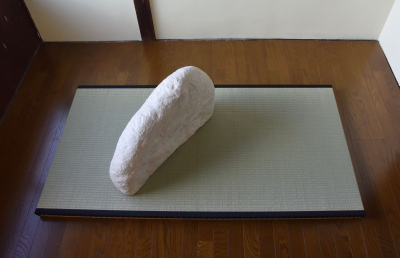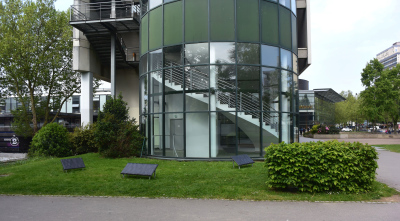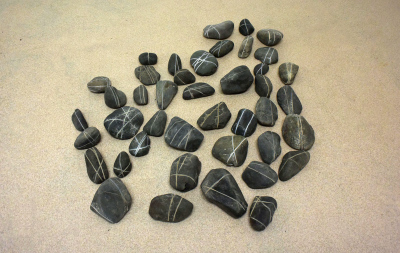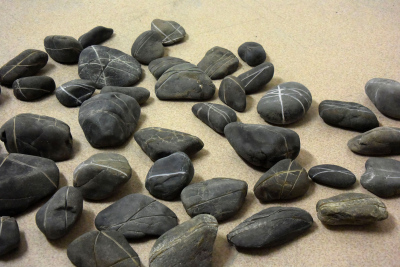desert flower
2024
marble and steel wool
80x92x30cm
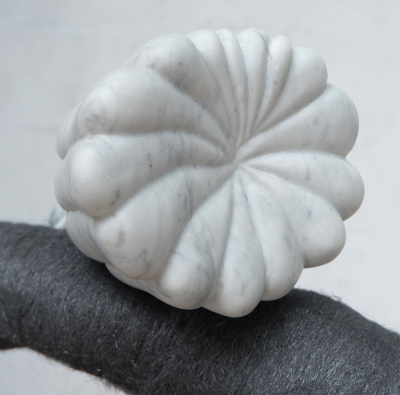
Fragile from the heaviness
Fragile from the heaviness. October 2024, Kuldiga
During the residency in Studija Space, I focused on working with local materials. Immersed in Kuldiga, most of my works were related to the preserved landscape. I aimed to create pieces that reflect the passage of time and geology. Inspired by Tim Ingold's book “Making: Anthropology, Archaeology, Art and Architecture,” which seeks the connection of these disciplines and how we can perceive and experience the world through the lens of making. With my work I was exploring to reveal the layers of elements that make up the environment, particularly the river and its banks. I titled this experience "Fragility from the heaviness" to capture the idea of becoming more fragile after enduring too much, like bent trees after strong winds. Some of my works were small-scale landscapes fixed to cellular concrete blocks, placed on wooden boards, and set on wheels to create moving images , capturing the fluidity and change of nature.
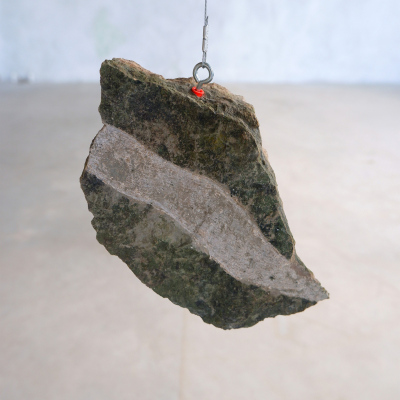
Fragile from the heaviness. October 2024, Kuldiga
During the residency in Studija Space, I focused on working with local materials. Immersed in Kuldiga, most of my works were related to the preserved landscape. I aimed to create pieces that reflect the passage of time and geology. Inspired by Tim Ingold's book “Making: Anthropology, Archaeology, Art and Architecture,” which seeks the connection of these disciplines and how we can perceive and experience the world through the lens of making. With my work I was exploring to reveal the layers of elements that make up the environment, particularly the river and its banks. I titled this experience "Fragility from the heaviness" to capture the idea of becoming more fragile after enduring too much, like bent trees after strong winds. Some of my works were small-scale landscapes fixed to cellular concrete blocks, placed on wooden boards, and set on wheels to create moving images , capturing the fluidity and change of nature.
Sous-face du paysage
Sous-face du paysage (Underside of the landscape), 2022
limestone from St. Maximin, steel
205x140x175cm
Sous-face du paysage (Underside of the landscape) is an installation made of St. Maximin limestone, suspended from a metal frame. It measures 175 cm in height, 205 cm in width, and 140 cm in depth. The stone elements are painted with oil pastels. This installation represents a geological map of Saint-Denis. The colors and contours on the installation correspond to real geological data: yellow areas indicate the presence of marl, gypsum deposits, and Noisy-le-Sec limestone. The relief of the installation reflects geological time, with the higher sections representing more recent formations (approximately 20 million years old), and the lower sections representing older formations (about 45 million years old) from the Cenozoic era.
This work continues my exploration of defining the space of touch. Sous-face (underside) refers to the interior of the landscape that we do not see but is beneath our feet.
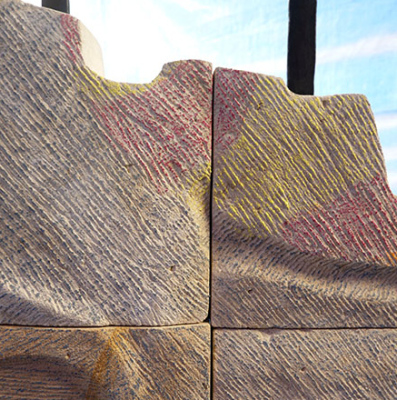
Still life
2022
Wool, oak

Untitled II
2022
Limestone, acide
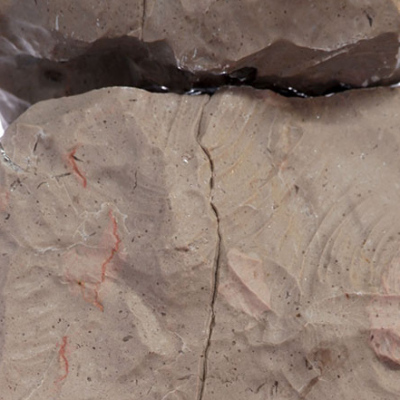
Matrioshka brain
2021
Aluminium cast
130x60cm
Matrioshka Brain is an aluminum sculpture initially crafted from polystyrene, shaped with a knife and air pressure to preserve the surface appearance of this lightweight material. It was then cast in aluminum, which burned away the polystyrene and took its place. The concept of the Matrioshka Brain, proposed by Robert Bradbury, envisions a future megastructure designed to harness energy around the Earth in multiple layers, similar to a Matrioshka doll. This sculpture also serves as a tribute to the Earth, depicting its three main layers. The smallest element has the form of a spaceship, symbolizing our imminent future in space.
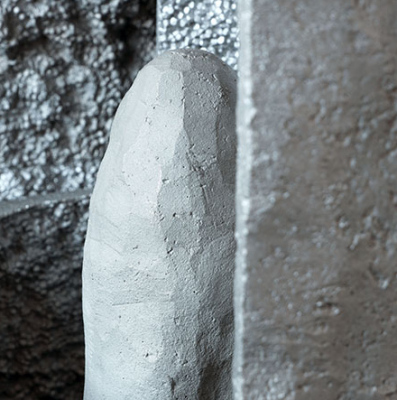
Ode mécanique
2021
Limestone, acid, IPN
Ode mécanique (Mechanical Ode) is made from two limestone blocks carved into wave shapes and then dipped in a nitric acid bath to reveal fossil imprints. These blocks are mounted on metal rods and rollers, allowing them to potentially roll along curved IPN steel rails. An ode is a poem of praise, and in this case, it celebrates mechanics—the study of movement and structure. The wave-shaped stones symbolize mechanical waves, representing oscillations in matter. The IPN steel rails form an endless track without a beginning or end. The installation captures a fixed moment where the stone is situated between different temporal states: its natural formation, its acceleration due to the roller setup, and its eventual erosion by acid.
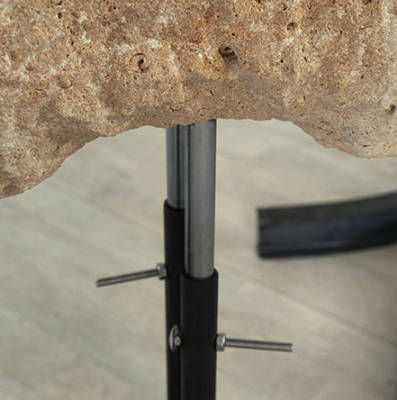
(h)altère
2021
Wool from Solčava
165x120x6cm; 180x120x6cm

Drying dry weight
2021
Tuff, steel
100x180x30cm
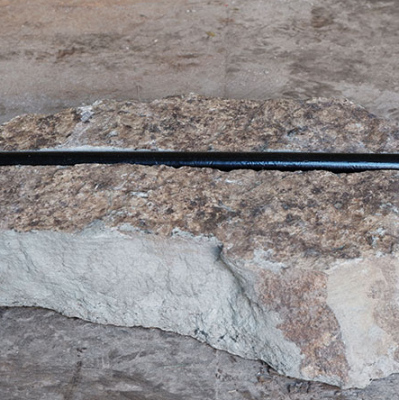
Souvenirs de la mer il y a 300 millions d'années
2021
Limestone from Ireland, sand bag
57x64x45cm
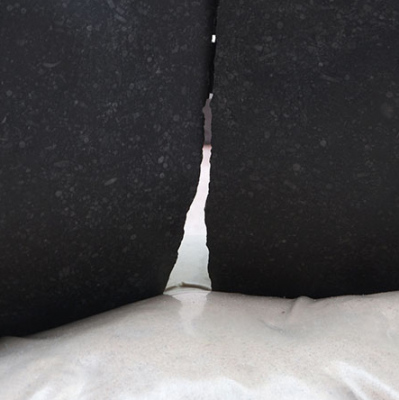
Fall interval
2021
Limestone from Comblanchien, steel, marking paint
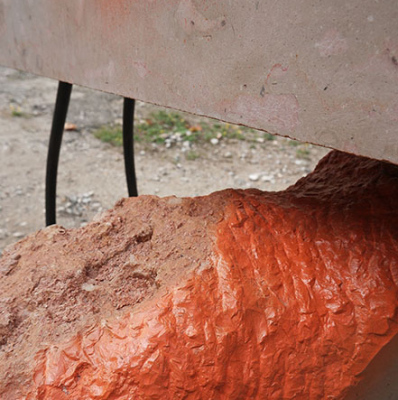
Svalka (junkyard in Russian, freshness in Swedish)
2019
Steatite (soapstone),wrought iron, variable dimensions
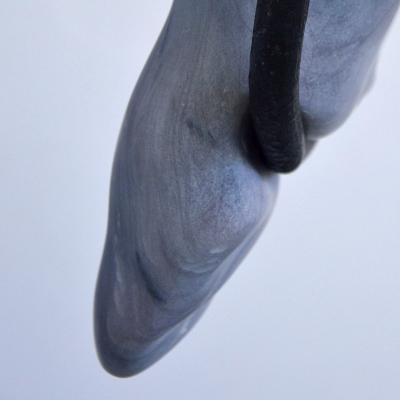
Submerged in a Lullaby
2018-continuously
Bronze, aquarium 80x35x25cm
Zinc, aquarium 102x15,5x39cm
Steel, aquarium 20x20x20cm

In transit
2019
Sandstone, acid, stainless steel, wheels
Stay in between, going from one place to another and to be in transition from one state to another. The landscape is changing and the only thing that we can
take with us is a memory of the place.
In transit is a stone sculpture installation, made with nine sandstones from the quarries of Erzen in Luxembourg. The surface is worked with nitric acid, which creates them more porous as if they are being in a moment of destruction. These kind effects it is possible to observe on buildings, bridges or even the famous fortress of Luxembourg, which are the traces of time and events. Nitric acid is used in different printmaking techniques, since 15th century, artists developed the eau-forte for engraving when acid attacks the metal and also in more recent - lithography from the 19th century which is a technique to draw on stones. By choosing to put it on stone sculptures, it is as the time has been accelerated. Tristan Garcia in “The Life Intense: A Modern Obsession” is analyzing this contemporary condition when we are seeking for more intensity and electricity in our life. By putting the weight of stones on metal bars and wheels, for a possible movement, I am looking to change the perception and to bring a lightness to sculptures as form of adaptation for the new conditions.
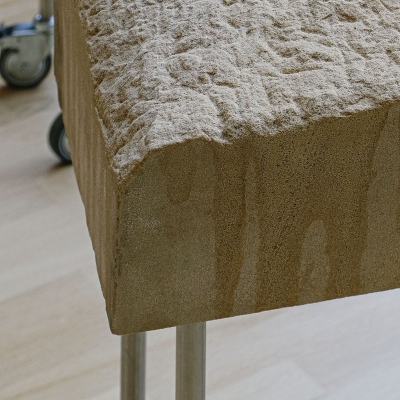
The Nest
2018
Limestone, marble
exhibition view: tesselles//pixels, the Louvre Museum, Paris
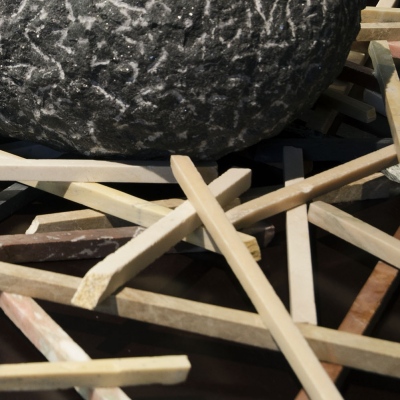
Untitled I
2017
Marble, tatami, photograph
exhibition view: The Whole and The Part, former Tani house, Suki festival, Tokyo
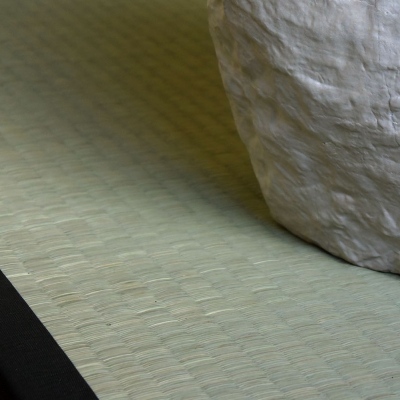
Couche cornée III
2016-2017
Carved slate
installation: Université Rennes 2
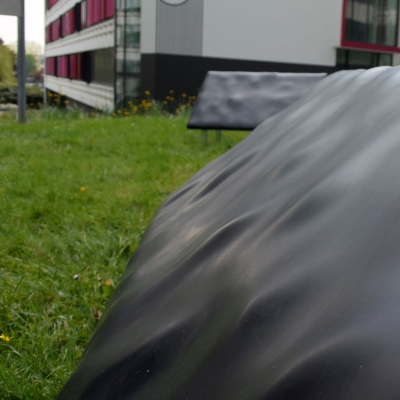
Attempts
2016
Traced stones
exhibition view: TECHNAE, Hôtel Pasteur, Rennes
